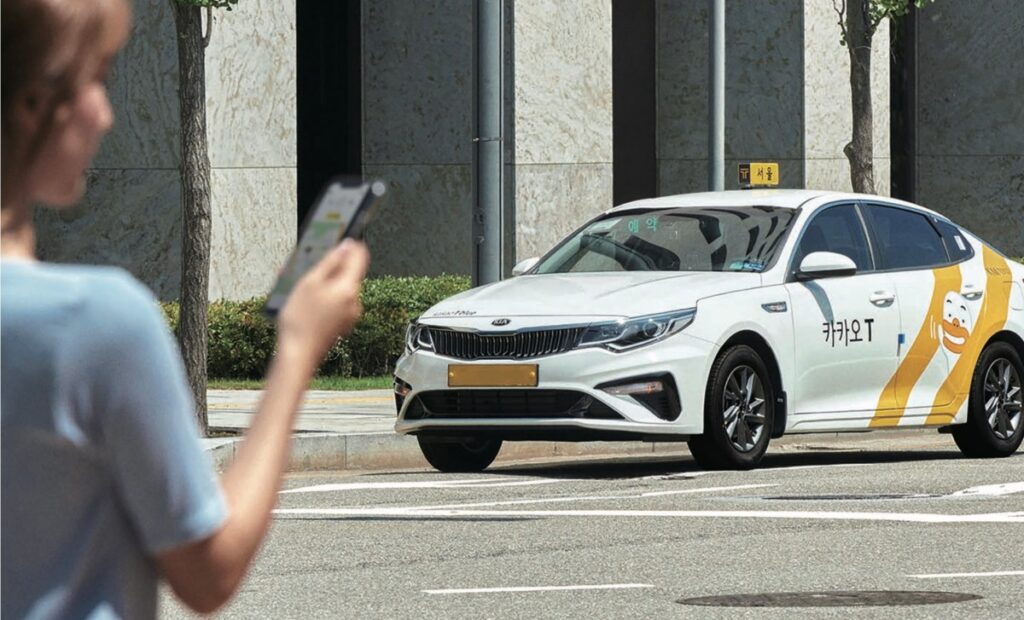Kakao Mobility was hit with a $10.5 million antitrust fine for restricting competitors’ access
South Korea’s antitrust watchdog fined Kakao Mobility, the ride-hailing unit of Korean tech company Kakao, $10.5 million (KRW15.1 billion) for restricting competitors’ access to its taxi app – lowering the penalty. From an initial fine of $50.3 million (72.4 billion Korean won) as the previous penalty was based on exaggerated calculations of the company’s operating profits.
Separately, in November, the Financial Services Commission Taxi-hailing company fined $2.47 million (3.4 billion KRW) On suspicion of accounting fraud, the case was referred to the Public Prosecutor for further investigation.
Kakao Mobility offers public passenger transportation services via the Kakao T app and concession booking services under its sub-brand “Kakao T Blue”, also within the same app.
Franchised taxis, including Uber and its local counterpart TADA, can use the Kakao platform since hailing public taxis is a brokerage service offered by intermediaries to all drivers on the platform under South Korea’s Passenger Transportation Service Law. While franchise taxis work with platform-based transportation providers like Uber to provide specialized transportation services as an alternative to regular communication — differentiating in vehicle quality, for example, or pickup time.
Kakao Mobility has the largest market share in the country’s ride-hailing market, holding a 96% market share as of 2022, according to statement By the Korea Fair Trade Commission (KTFC) in October. As of October, Kakao Mobility, also known as Kakao Taxi, remained the market leader — with 13.2 million monthly active users — while competitors Uber, TADA, and I’M had 700,000; 6400; and 5,800 units used per month, respectively, According to a local media report.
Last month, KTFC reported that Kakao Mobility had claimed franchise competitors, such as Banban, Macaron Taxi, TADA, Uber Taxi (formerly UT)either pay a fee for drivers to access the Kakao T app or sign partnership agreements that allow Kakao Mobility to collect their operational data, including sensitive business information such as driver details. If they refuse, franchise drivers using the Kakao platform will be banned from using the Kakao T app.
Uber and TADA did not have partnerships with Kakao Mobility, which prompted taxi drivers to block the use of the Kakao T app. Instead, Banban and Macaron Taxi partnered with Kakao Mobility, according to an FTC statement in October. These partnerships helped Kakao Mobility increase its market share from 51% in 2020 to 79% in 2022, strengthening its market dominance.
“Ban [franchise taxis from accessing calls on the Kakao T app] “This is actually done to reduce the frequency of calls between platforms and enhance user convenience,” claimed Ji Choi, Kakao Mobility spokesperson, in an emailed statement.
“Kakao Mobility is fully committed to supporting the government’s initiatives to promote fair competition within the platform industry while at the same time pursuing administrative litigation to unequivocally prove that no legal violations have occurred,” the statement added.
Kakao reported improved operating profits for the third quarter of this year in November, but concerns remain as the improvement came without sales growth. Moreover, a new chat-based AI service, Kanana, which aims to launch a closed beta service next year, is receiving mediocre response in the market due to its limited data allocation, according to local media reports.
In other recent news, Kakao CEO and Founder, Brian KimHe was Granting bail In October, after 100 days of arrest on charges of involvement in stock manipulation.



